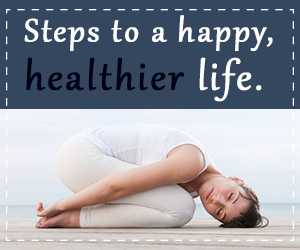Should You Break-Up With Gluten?
Going gluten free is like breaking any other addiction, it takes dedication, willpower and sometimes you fumble a few times before it sticks. Nowadays going gluten-free and even grain-free seems to be a growing trend and more and more gluten free products are being introduced into the market and those that have always been gluten free are making a marketing push to let you know.
As delicious as a freshly baked loaf of bread may smell it may be worth investing a little more in a fresh loaf of gluten free bread.
So, what’s the deal with going gluten-free? For me it was a lot of things. My first time I was in my early 20’s suffering from terrible menstrual cramps from endometriosis, IBS, fibromyalgia and who knows what else. I felt run down, bloated and was always in pain. Until I did a cleanse, went gluten free and got rid of all of my symptoms. Even now when I falter I notice an immediate connection between eating gluten and monthly cramps.
My daughter has been gluten free since she was one. For her it manifested in a chronic runny nose and eczema that slowly covered her entire stomach.
A review done by The New England Journal of medicine stated that more than 55 diseases have been linked to eating gluten. A short list includes:migraines, epilepsy, anxiety, depression, autism, IBS (irritable bowel syndrome), rheumatoid arthritis, anemia, inflammatory bowel disease, fatigue, lupus, multiple sclerosis and almost all other autoimmune diseases.
Gluten sensitivity is an autoimmune disease that creates inflammation in the body and wreaks havoc throughout the body. Being sensitive to gluten doesn’t mean you have celiac disease, many people that are tested and come up negative for Celiacs are still gluten sensitive and see tremendous health benefits by going gluten free.
The list of health problems that arise from eating gluten is too long to list but here are some of the most common ones. If you suffer from any of these it may be time to consider switching to a gluten free diet.
1. Tummy issues: gas, diarrhea, constipation.
2. Skin trouble: dry skin, eczema or “scratchy” feeling skin almost like goose bumps that wont go away.
3. Menstrual cramps, PCOS, infertility
4. Frequently feeling dizzy or out of balance
5. Mood swings, trouble concentrating, difficulty remembering things, brain fog or excessive fatigue.
6. Migraines or frequent headaches
7. Joint pain with swelling and inflammation
It can be challenging at first but usually the improvement in your overall health is so dramatic that you just don’t want to go back to feeling the way you were before and those who do have temporary lapses of judgement get right back on it. I’ve yet to meet someone who’s gone gluten free and not felt better. Clients I’ve worked with on have even done cleanses with no intention of remaining gluten free after the cleanse and have kept it up because of how much better they’ve felt.
You don’t need a fancy blood test to figure out how if cutting the gluten will benefit you, just give it a shot. A simple elimination diet can get you going in the right direction and you don’t need to spend any money to try it out.
Next week I’ll be posting information about how to get started on a gluten elimination diet and help you identify hidden sources of gluten that you’d never expect to find gluten in.











